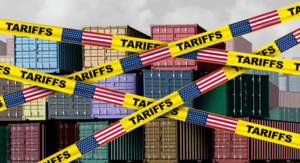
Impact of Climate Change on the Global Economy
The impact of climate change on the global economy is a pressing concern that transcends environmental boundaries, extending its far-reaching consequences into the intricate web of economic systems worldwide.
As the Earth’s climate undergoes unprecedented shifts, the repercussions on various industries, from agriculture to infrastructure, are becoming increasingly evident. The escalating frequency and intensity of extreme weather events, coupled with rising sea levels and shifting precipitation patterns, pose significant challenges to economies dependent on stable conditions.
Beyond immediate losses, climate change-induced disruptions create a ripple effect, impacting supply chains, productivity, and market stability, thereby necessitating proactive global collaboration for sustainable solutions.
Table of Contents
Impact of Climate Change on the Global Economy
Inextricably intertwined with the health of our planet, the impact of climate change on the global economy extends beyond physical damages to encompass intricate economic interdependencies. The altering climate conditions introduce heightened uncertainties, affecting investment decisions, insurance premiums, and long-term planning across diverse sectors.
Escalating risks, such as extreme weather events, resource scarcity, and ecological degradation, amplify vulnerabilities in global economic frameworks. The need for adaptive strategies and resilient infrastructure becomes paramount as nations grapple with the multifaceted challenges of climate change.
Addressing these issues requires a comprehensive understanding of the intricate relationship between climate dynamics and economic structures, urging a coordinated international effort to mitigate the adverse impacts on the global economic aspect.
In this article we will delve into the multifaceted ways in which climate change influences the global economy, with statistical data and information.
1. Extreme Weather Events and Economic Disruptions
The impact of climate change on the global economy is starkly evident in the rise of extreme weather events. Climate change intensifies hurricanes, droughts, floods, and wildfires, causing widespread devastation.
The Global Climate Risk Index 2021 reveals economic losses surpassing $2.56 trillion between 2000 and 2019, disproportionately impacting developing nations. These events disrupt communities and economies, diverting resources from productive activities to post-disaster recovery.
The cycle of destruction hampers long-term economic growth, emphasizing the urgent need for global climate action to mitigate these consequences and build resilient societies.
2. Agricultural Impacts and Food Security
Climate change poses a significant economic challenge to global food security as shifting weather patterns and temperature extremes impact crop yields. Changes in precipitation patterns, prolonged droughts, and the spread of pests and diseases contribute to declining agricultural productivity.
The World Bank estimates that a 1-degree Celsius increase in global temperatures could lead to a 7.4% reduction in staple crop yields. As agriculture forms the backbone of many economies, the ripple effects of these losses extend throughout the entire economic system, affecting livelihoods and increasing the risk of food shortages.
The impact of climate change on the global economy underscores the urgent need for coordinated efforts to mitigate these climate-induced risks and build resilience in global food systems.
3. Rising Sea Levels and Infrastructure Vulnerability
Coastal regions, home to a substantial percentage of the global population, face the imminent threat of rising sea levels. As sea levels continue to rise due to melting glaciers and thermal expansion, low-lying coastal areas become increasingly vulnerable to inundation.
The impact of climate change on the global economy is stark, with vast economic implications encompassing the loss of valuable real estate, damage to infrastructure, and the displacement of populations. The World Bank estimates that by 2050, the impact of rising sea levels could cost coastal urban areas around $1 trillion annually.
This pressing menace demands urgent global attention and comprehensive strategies to mitigate the impacts, safeguard vulnerable communities, and preserve vital coastal ecosystems. Addressing climate change is paramount to securing the future of these at-risk regions and ensuring the stability of the global economy.
4. Energy Sector Challenges and Transition Opportunities
The energy sector, a major contributor to greenhouse gas emissions, is both a victim and a potential solution to climate change. The increasing frequency of extreme weather events poses risks to energy infrastructure, disrupting the production and distribution of power. Impact of climate change on the global economy further amplifies the urgency for sustainable practices.
On the other hand, the transition to renewable energy sources presents economic opportunities. According to the International Renewable Energy Agency (IRENA), the global energy transition could generate up to $98 trillion in cumulative economic gains by 2050.
This dual narrative underscores the pivotal role of the energy sector in both climate resilience and fostering a lucrative, green economy for the future.
5. Insurance Industry and Climate-Related Financial Risks
The escalating frequency and severity of climate-related disasters have put immense pressure on the insurance industry and have significant implications for the global economy. The impact of climate change on the global economy is particularly evident as insurers grapple with growing financial risks amid surging payouts for climate-related claims.
The Bank of England estimates that the value at risk from climate change for the global insurance industry ranges from $20 trillion to $43 trillion, underscoring the far-reaching consequences. This not only affects the profitability of insurance companies but also raises concerns about the industry’s ability to provide affordable coverage in the face of escalating climate risks.
As climate events intensify, the industry faces a critical juncture in balancing economic viability with the imperative to contribute to the overall stability of the global economy.
6. Global Supply Chains and Economic Interdependence
Climate change disrupts global supply chains, which are increasingly susceptible to extreme weather events and climate-related disruptions, amplifying the impact of climate change on the global economy.
The interconnectedness of the global economy means that a disruption in one region can have far-reaching consequences across the supply chain. The World Economic Forum’s Global Risks Report consistently identifies environmental risks as major threats to the global economy.
As supply chains become more complex and interconnected, the need for resilience and adaptability becomes paramount to ensure sustained economic growth amidst the escalating challenges posed by the impact of climate change.
Bottom Line
The impact of climate change on the global economy is complex and multifaceted, with repercussions ranging from direct economic losses to shifts in industry dynamics. The statistics and references presented in this article underscore the urgency for decisive action to mitigate and adapt to climate change.
The intersection of environmental and economic challenges requires coordinated efforts at the international level to foster sustainable development, resilience, and a low-carbon future.
As the global community grapples with the consequences of climate change, the imperative to build a resilient and sustainable economy has never been more apparent.





